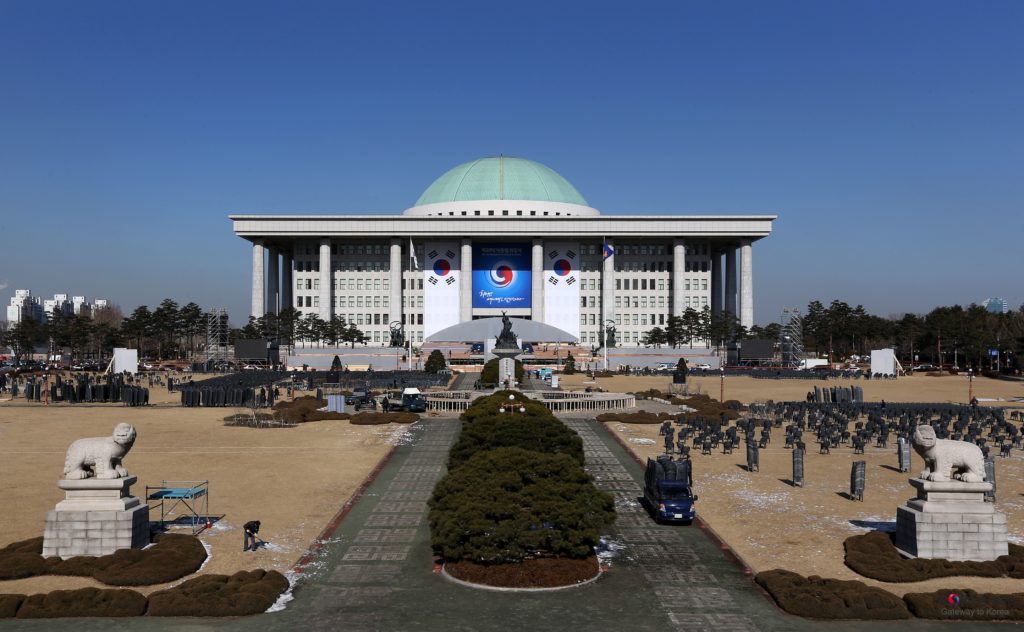The Peninsula
Role of Coronavirus Overstated in General Elections?

This briefing comes from Korea View, a weekly newsletter published by the Korea Economic Institute. Korea View aims to cover developments that reveal trends on the Korean Peninsula but receive little attention in the United States. If you would like to sign up, please find the online form here.
What Happened
- President Moon Jae-in’s approval rating fell 5% between mid-January and the final week of February, according to Gallup.
- Conservative politicians have criticized Moon’s handling of the epidemic since the initial stages of the outbreak.
- A poll by Hankook Research revealed that 50% of constituents identifying as centrists disapprove of the government response to COVID-19.
Implications: While President Moon Jae-in’s approval ratings have fallen in the past 6 weeks, the impact of the coronavirus on people’s confidence in the government may be overstated. President Moon’s approval rating fell from 47% in the second week of January (before the first confirmed coronavirus case in South Korea) to 42% in the final week of February as the number of coronavirus patients grew to nearly 3,000. However, Moon’s approval ratings have been fluctuating between 39% and 49% since October 2019. Although additional polling suggests that the government’s handling of the outbreak may affect the voting behavior of some cohorts in the upcoming general election, Korean presidents commonly head into legislative elections with falling approval ratings.
Context: Fluctuating approval ratings of previous administrations suggest that public health crises may have less impact on voter sentiment than analysts assume. For example, President Lee Myung-bak faced the H1N1 outbreak in 2009-2010, which infected 700,000 Koreans and killed 260. Despite the high rate of infection, Lee’s approval rating grew to 54% during the height of the epidemic and still enjoyed 48% support by the time the outbreak was declared over in April 2010.
It is also true that every preceding South Korean presidential administration experienced a natural erosion of public support. About a month before the 2012 legislative elections, President Lee’s approval rating stood at a mere 26% – a shadow of President Moon’s current 42%, one month before elections on April 15, 2020. As KEI’s Junil Kim noted in a previous blog article, every South Korean president sees their ratings continue to fall as their term continues. In that sense, President Moon is actually playing with an advantage, having entered office in 2017 with historically high approval ratings.
Korea View was edited by Yong Kwon with the help of Gordon Henning, Soojin Hwang, Hyungim Jang, and Ingyeong Park.
Photo from the Republic of Korea’s photostream on flickr Creative Commons.
